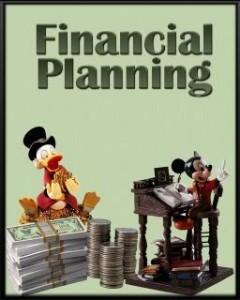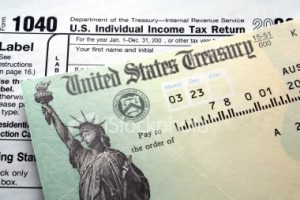Posts Tagged ‘investments’
Posted on: April 27th, 2010 by Amy Bolger
 Having shaken off the jitters of recent stock market downturns, many investors are beginning to re-emerge and re-enter the stock market, or at least become more active with current investments. Many of these people are simply looking to recoup their retirement losses. Entering into the stock market without the proper information or assistance of an investment manager can be a recipe for disaster though. Having shaken off the jitters of recent stock market downturns, many investors are beginning to re-emerge and re-enter the stock market, or at least become more active with current investments. Many of these people are simply looking to recoup their retirement losses. Entering into the stock market without the proper information or assistance of an investment manager can be a recipe for disaster though.
If you choose to venture into the investment marketplace on your own, however, there are a few things to keep in mind. First, you should consider favoring large company stocks over those of smaller firms. If anything were to happen in the future, heaven forbid, larger companies can recover a lot faster than smaller companies. You must also remember that bear markets do happen, and even though we have just gone through 2 terrible ones in the past decade making it seem easiest to just jump ship and bail, you need to hold out in order to beat inflation and reel in returns.
Another thing to keep in mind is to steer clear of long-term bonds. If inflation escalates, which, lets be honest, is very possible because of the Federal deficit, you won’t want to be stuck in an investment where the market will demand higher yields than your bond is paying. If you’re in a higher tax bracket, a good choice would be municipal bonds, which are generally tax free. Those in lower tax brackets may want to invest in taxable bonds, which generally have a higher yield. A financial adviser can help choose the best bonds for you.

Tags: financial adviser, investment manager, investment marketplace, investments, stock market, taxable bonds
Posted in Financial Planning Rockville |
No Comments »
Posted on: April 20th, 2010 by Amy Bolger
 Some people have the time, ability, and the drive to manage all their finances, whereas others don’t. If you’re anything like me, you fall into the latter category. Either way though, financial advisers can provide great insight and often not at exorbitant costs. There are many myths out there that prevent too many people from seeking the assistance of financial planners though. One of the biggest misconceptions is that they will only give you advice on investing. Picking the right investments is certainly an important aspect of your personal finances, but its not the only part. Financial planning takes into account all the varied aspects of a person’s life, including taxes, insurance, retirement, budgeting, etc. With the aid of a financial planner who considers your individual situation, you’ll be able to minimize the amount of taxes you pay and have a strong bottom line in the end. Some people have the time, ability, and the drive to manage all their finances, whereas others don’t. If you’re anything like me, you fall into the latter category. Either way though, financial advisers can provide great insight and often not at exorbitant costs. There are many myths out there that prevent too many people from seeking the assistance of financial planners though. One of the biggest misconceptions is that they will only give you advice on investing. Picking the right investments is certainly an important aspect of your personal finances, but its not the only part. Financial planning takes into account all the varied aspects of a person’s life, including taxes, insurance, retirement, budgeting, etc. With the aid of a financial planner who considers your individual situation, you’ll be able to minimize the amount of taxes you pay and have a strong bottom line in the end.
Some people truly believe that only wealthy people need a financial planner. Financial planning is about helping people of all income levels achieve short-term and long-term financial goals. If you are confident enough to make all of these decisions on your own and keep up to date with all the laws relating to investment income and taxation, then more power to you. But if you have a busy life and need the assistance of a financial adviser, make sure you do your homework before choosing one. You should verify certifications and look into their background to make sure you are getting a reliable adviser.

Tags: financial adviser, financial goals, financial planner, financial planners, financial planning, investments
Posted in CPA Rockvile |
No Comments »
Posted on: April 15th, 2010 by Amy Bolger
 Whether you completed your return months ago or are just getting it in at 11:59pm on April 15, you are still relieved to have your return in Uncle Sam’s hands on time. But before you file away your 1040 for good, make a copy of it for your financial adviser. Some careful scanning of this document can help you plan for the future. And that doesn’t just mean adjusting your withholdings or estimated payments or catching missed deductions; it can be a valuable tool to help you determine the best usage of your money, what types of investments might work best for you, and what types of portfolio changes you may want to make. Whether you completed your return months ago or are just getting it in at 11:59pm on April 15, you are still relieved to have your return in Uncle Sam’s hands on time. But before you file away your 1040 for good, make a copy of it for your financial adviser. Some careful scanning of this document can help you plan for the future. And that doesn’t just mean adjusting your withholdings or estimated payments or catching missed deductions; it can be a valuable tool to help you determine the best usage of your money, what types of investments might work best for you, and what types of portfolio changes you may want to make.
One thing to look for on your return is if you have more than $1000 in taxable interest or unqualified dividends, you may want to think about relocating some of those holdings into tax deferred accounts. Another option, if you need to keep those funds readily available, is to look into a stock index fund that covers the total US or international markets. These funds don’t trade holdings often, so they don’t generate many capital gains. You should discuss the tax implications of these funds with your tax adviser first, as the rates are soon to be changing.
You should also look for capital losses that you are able to carry forward to future years. You can use your capital losses to offset your capital gains, so you may be able to make some investment changes without incurring a tax bill. Talking with your financial adviser about your portfolio may help you to determine if you have some investments you want to sell to re-balance the taxable portion of your portfolio or get rid of some high fee mutual funds. But, you shouldn’t just make the changes just for the sake of using up the losses because you can use $3000 each year to reduce your taxable income.

Tags: capital gains, financial adviser, investments, linkedin, tax adviser, tax return
Posted in CPA Rockvile |
No Comments »
Posted on: April 14th, 2010 by Amy Bolger
 For many people, April is tax refund time; but for others, it brings about very unpleasant thoughts. What would you do if your accountant called you to tell you the results of your processed return and it turns out you owe thousands of dollars you don’t have? Or if you did your own return, how many times can you re-run the numbers? There are possible options you can use to help pay your tax bill. One option available is paying with one or more of your credit cards. This may not be the best option, however, given how high the interest rates are on credit cards. Also, when you pay your taxes with your credit card, you will incur a 2.25-3.93% convenience depending on the third-party company you use. For many people, April is tax refund time; but for others, it brings about very unpleasant thoughts. What would you do if your accountant called you to tell you the results of your processed return and it turns out you owe thousands of dollars you don’t have? Or if you did your own return, how many times can you re-run the numbers? There are possible options you can use to help pay your tax bill. One option available is paying with one or more of your credit cards. This may not be the best option, however, given how high the interest rates are on credit cards. Also, when you pay your taxes with your credit card, you will incur a 2.25-3.93% convenience depending on the third-party company you use.
Another option is to obtain a bank loan. Banks and credit unions offer loans to help consolidate debt secured by your property, but this option may or may not be much better than putting the money on your credit card. A debt consolidation loan may charge between 6-21% APR depending on your credit rating. If you currently have good credit and this tax debacle is a one time thing though, your credit score might be better off if you take out the loan versus racking up a credit card balance with a high interest rate.
Unexpectedly owing money to the IRS, in my humble opinion, definitely counts as an emergency situation. You may want to consider using your savings, your emergency fund to pay off the debt. If you can afford to pay it off from savings, it is best to do so and not incur any further penalties or interest. Any good accountant would tell you the same thing.
There is also the option of selling off investments. But the problem with selling off investments in an emergency situation is that you may have to take a loss. But, if you speak to your accountant about this, there are two positive things that may come of it. The first being that your tax bill is paid off and you are not accruing interest and penalties furthering your debt. The second being that if you have to sell at a loss up to $3000, you can use this to offset any gains from selling appreciated investments in the same year. This will minimize next year’s tax bill. Any losses over $3000 can be carried over to the following year.
You can also contact the IRS about setting up an installment agreement. You will still face penalties and interest while you are paying off the debt, and you’ll need to make the payments in full and on time every month. There is also a fee to setting up the plan, as well as a fee to reinstate the plan if you fail to meet your obligations. One reason you may not want to go this route though is that the government can still file a a Notice of Federal Tax Lien on your property until your debt is paid off, making moving or using your equity near impossible.
The last option is taking out a home equity line of credit if you own a home. Borrowing against your equity is an attractive option because interest rates tend to be low and the interest may be tax deductible. The problem is, if you fail to make payments on the loan, you risk losing your house. The extra interest you may pay by putting it on your credit card may be worth not putting your home at risk.
Don’t feel alone if you fall into this category of owing money to the IRS. Many people find themselves in this position every year, and every year accountants help their clients try to work things out. Weigh out all of your options, sit down with a professional, and determine the most suitable option for your position. But don’t stick your head in the sand like an ostrich and think the problem will just go away; the IRS will eventually come knocking.

Tags: accountant, debt consolidation loan, investments, irs, linkedin, tax refund, twitter
Posted in CPA Rockvile |
No Comments »
Posted on: March 31st, 2010 by Amy Bolger
 Before retirement, there are two major things you should discuss with your financial adviser: how to pay off your debt before retirement and what your investment fees will be. Both are advantageous to maximizing your retirement benefits. It is very important to plan to eliminate monthly debts prior to retirement (especially your mortgage) because eliminating the fixed expense cuts down tremendously on the dent those costs will leave on your fixed income. Speaking with a financial adviser will help you make plans to pay off these debt in a respectable amount of time without putting forth your savings toward paying the debts. And lastly, before investing you need to ask the important question, “How much will this cost me?”. Fees and expenses diminish investment return. Avoid investments that charge you higher percentages and bank accounts that charge fees. Your financial adviser and/or a little research can help direct you to the best options. Before retirement, there are two major things you should discuss with your financial adviser: how to pay off your debt before retirement and what your investment fees will be. Both are advantageous to maximizing your retirement benefits. It is very important to plan to eliminate monthly debts prior to retirement (especially your mortgage) because eliminating the fixed expense cuts down tremendously on the dent those costs will leave on your fixed income. Speaking with a financial adviser will help you make plans to pay off these debt in a respectable amount of time without putting forth your savings toward paying the debts. And lastly, before investing you need to ask the important question, “How much will this cost me?”. Fees and expenses diminish investment return. Avoid investments that charge you higher percentages and bank accounts that charge fees. Your financial adviser and/or a little research can help direct you to the best options.

Tags: bank accounts, financial adviser, investment return, investments, retirement benefits
Posted in CPA Rockvile |
No Comments »
|
|
 Having shaken off the jitters of recent stock market downturns, many investors are beginning to re-emerge and re-enter the stock market, or at least become more active with current investments. Many of these people are simply looking to recoup their retirement losses. Entering into the stock market without the proper information or assistance of an investment manager can be a recipe for disaster though.
Having shaken off the jitters of recent stock market downturns, many investors are beginning to re-emerge and re-enter the stock market, or at least become more active with current investments. Many of these people are simply looking to recoup their retirement losses. Entering into the stock market without the proper information or assistance of an investment manager can be a recipe for disaster though.




